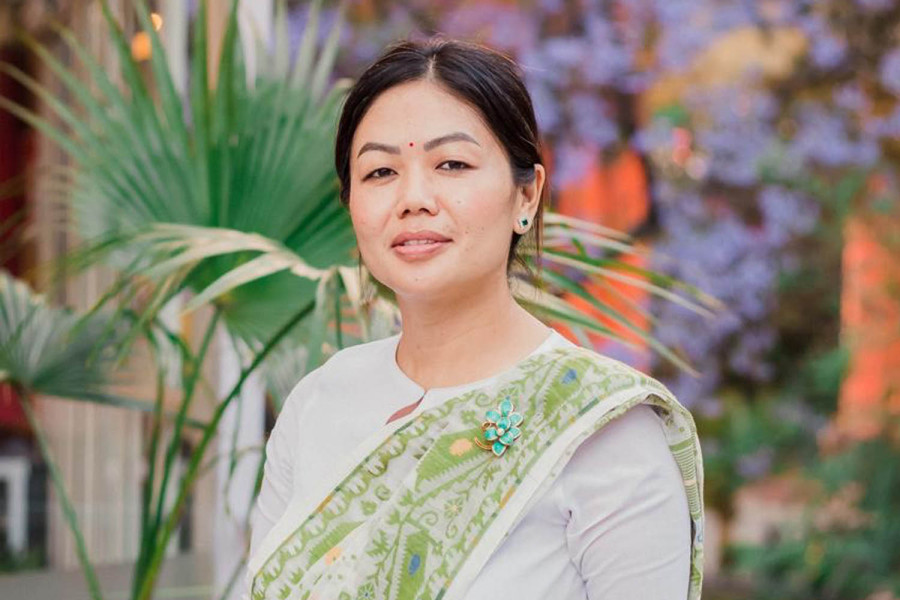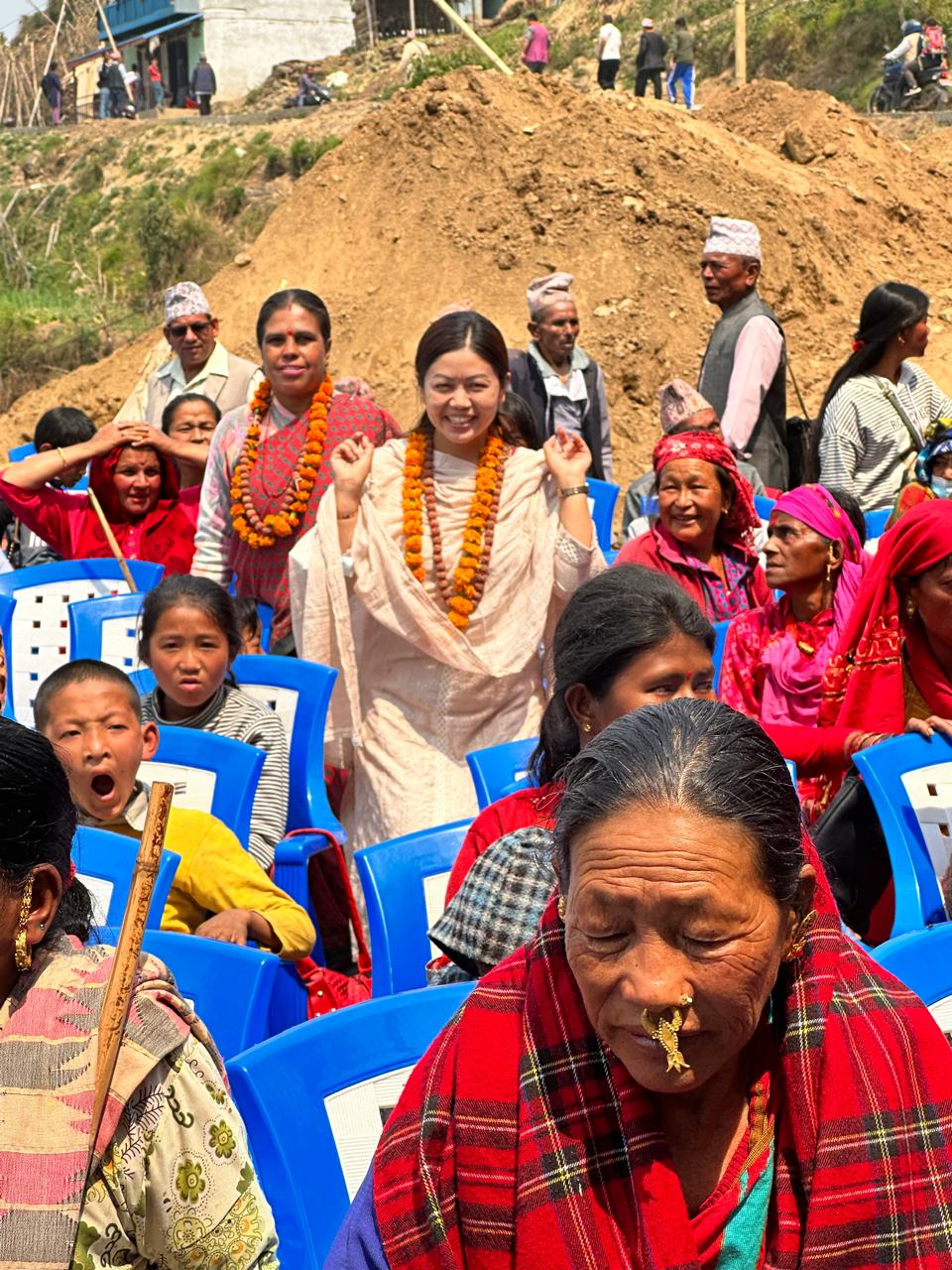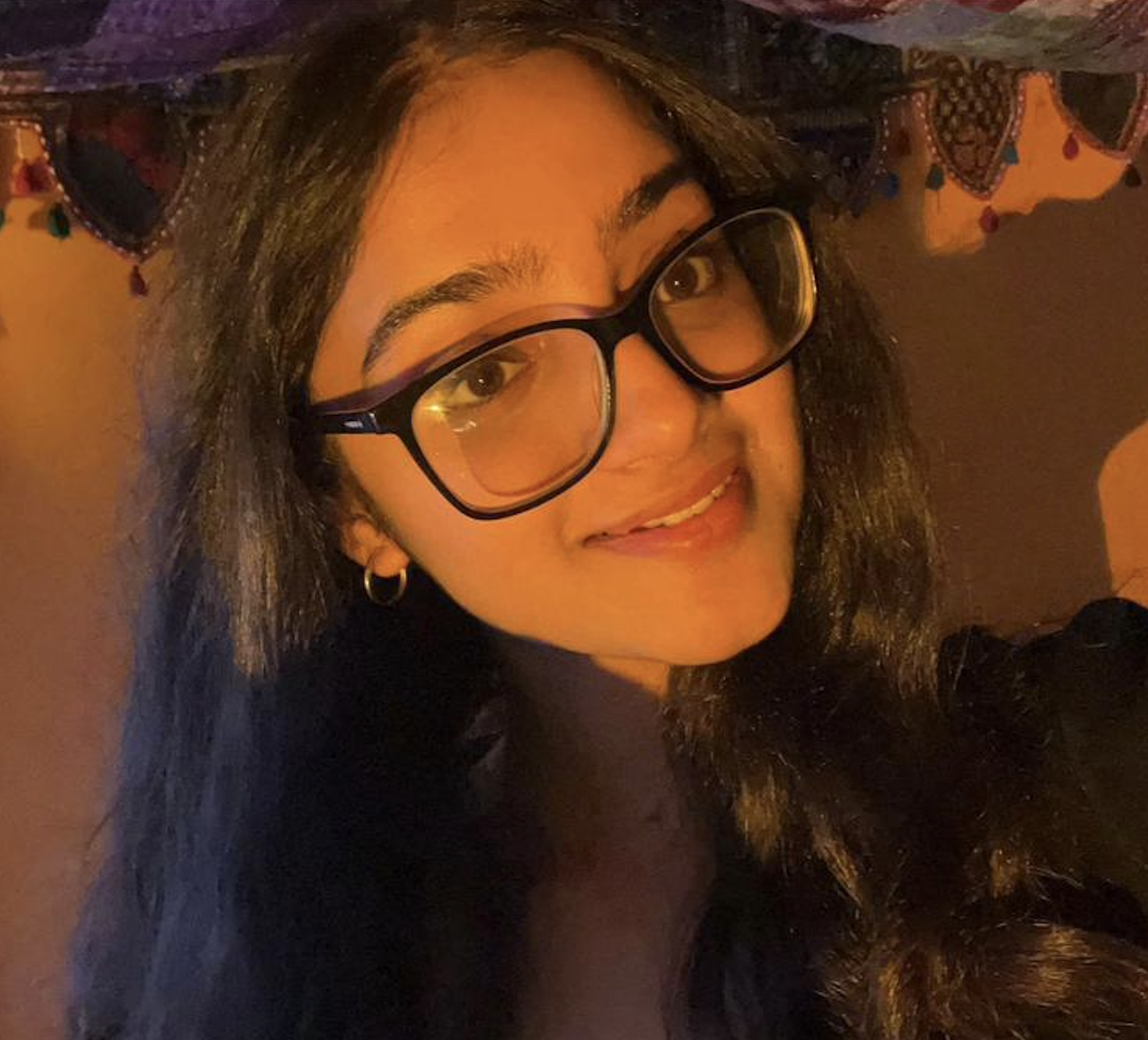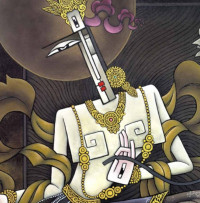Culture & Lifestyle
A life of service
After losing her mother at a young age, Yangzom Sherpa founded the Ghunsa Foundation to address healthcare challenges in her remote village in Taplejung.
Rishika Dhakal
Yangzom Sherpa, the founder of the Ghunsa Foundation was eight years old when her mother succumbed to death while giving birth to her younger brother. The death was caused by severe bleeding which led Sherpa to start the foundation.
The Ghunsa Foundation currently runs various health-related campaigns, such as blood donation programmes, vaccination programmes, health and education programmes in remote areas, delivery assistance, vaccinations, family planning facilities, and others.
Sherpa was born in Ghunsa village in Taplejung district, one of Nepal's underdeveloped regions. She grew up in a poor household, and as a child, her only dream was to have a full meal each day. After her mother’s death, her struggles increased as she had to take care of herself and her siblings.
Later, her relatives shared the responsibility of caring for her and her siblings. Sherpa went to Terhathum to live with her aunt, where she was allowed to study. She recalls, “I sold Bikhuma (a type of herb) for Rs100 and used the money to pay for my education.”
In addition, Sherpa worked various domestic jobs around the village to support herself. Every year, she received the Bhanu Bed Puraskar, a prize of Rs1,400-Rs1,600, for her academic achievements.
When she moved from her quiet village to the bustling city of Kathmandu, Sherpa experienced a significant cultural shock. Her friends often teased her because of her traditional attire, Bakkhu, and language.
After completing her Auxiliary Nurse Midwife course in Kathmandu, Sherpa returned to her village to find that the conditions had not improved. Pregnant mothers still had to travel for three days on foot to reach the hospital. The journey was dangerous, as the mothers in labour faced a risk of losing their lives due to intensified pain.
She recalls, "I felt restless and helpless seeing mothers lose their lives due to postpartum haemorrhage. Even newborns became victims due to lack of health posts."
Ambitious but financially constrained, Sherpa took her first initiative to resolve the problem in her village by building a health post in one of the school's classrooms.
After contacting the rural municipality, Sherpa equipped the classroom-turned-health posts with medicines. Without professional health personnel, she received voluntary help from the son of a woman she had cared for in Kathmandu. He had trained as a health assistant and stepped in to assist.
With the help of one of the journalists at the time working in Kantipur publications Saral Gurung, Sherpa collected the necessary funds needed to build a new health post building.
“With the assistance provided by Gurung, we started conducting social media campaigns,” The campaign proved to be a success, helping to attract attention and funds from people all over the country.
When asked about the turning point in her life, Sherpa mentioned the inauguration of her foundation by Prime Minister KP Sharma Oli. This event was monumental for the foundation's progress, as it allowed Sherpa to draw attention to the country's top leaders and bureaucrats, helping to elevate the foundation’s profile.
She recalls, “I was able to grab the attention of the prime minister when I spoke about inclusivity in Maitighar Mandala during one of the ethnicity-related protests.”
Slowly but steadily, Sherpa’s dream of building a health post for her village began to take shape. She formed connections with various people who helped her raise the necessary funds to support the foundation's operations.
As a result, the maternal mortality rate in her village dropped to zero. The foundation also acquired essential equipment and machinery. According to Sherpa, 150 mothers and babies have already benefited from the foundation's efforts.
“Currently, I have seven workers at the foundation. I plan to hire two more female workers from the Chepang and Meche communities to address their communities' specific issues,” she said.
In addition to her work at the foundation, she provides guardianship to children who have lost their parents at a young age. For her efforts, the World Development Bank recognised her as one of the most courageous women in 2018.

Despite the pain of losing a mother at a young age, Sherpa found peace in helping others. She has also adopted a daughter who has experienced a similar fate of losing a mother during labour.
“My daughter has become my guiding light,” she says. “I want to make sure she never feels abandoned. This is my way of breaking the grief cycle and providing a loving home,” she adds.
In addition to her other efforts, Sherpa has taken full responsibility for educating the first child born at her health post, covering their schooling up to the 12th grade. The child is currently enrolled at Shree Mangal Dvip Boarding School in Bauddha.
Sherpa plans to expand the foundation’s work into the education sector. She has been coordinating with municipalities to improve the quality of education in her village. Recently, the Ghunsa Foundation provided free live classes to 6,000 students through an app called Ambition Guru. The classes focused on subjects like Mathematics, Science, and Social Studies.
Sherpa has embraced the philosophy of Pushpa Basnet, the 2016 CNN Hero, as her guiding principle in life. Basnet’s saying, “If your hand is closed, you can't offer anything to others; but if it’s open, you can give generously to everyone,” has deeply resonated with Sherpa. She believes this has become her mantra, guiding her actions and decisions.
The tragedy of losing her mother at a young age made her understand the importance of guardianship. This inspired her to become a maternal figure for countless underprivileged children facing similar challenges.
Sherpa asserts that her mother's death has proved to be her biggest weakness and, at the same time, her biggest strength. She was able to capitalise on her grief to serve society.
Sherpa also encourages everyone to cultivate self-confidence and keep an eye open for learning. “Every action, no matter how small, contributes to something greater. Despite lacking quality education, I gained insights through interactions with people from diverse backgrounds, which has helped me tremendously with my dealings in life.”




 13.12°C Kathmandu
13.12°C Kathmandu















